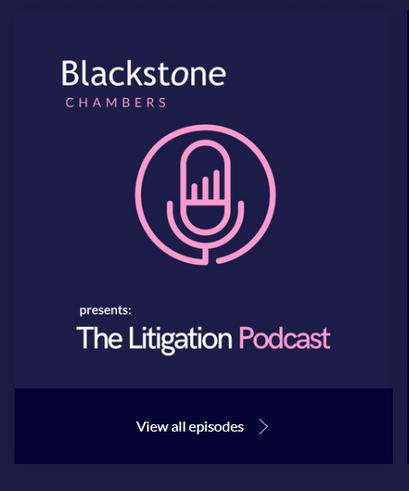
3 minute read
ResistingEnforcement whilstChallengingan InternationalAward
Tom Leary
Parties will frequently want to delay foreign enforcement proceedings whilst challenging the Award in the supervising courts. But the courts are astute to avoid unnecessary delay and arbitral challenges are not a silver bullet that will prevent enforcement in all circumstances.
Advertisement
Article VI of the New York Convention (which is given effect by section 31(5) of the Singapore International Arbitration Act and section 103(5) of the English Arbitration Act 1996) provides that:
“If an application for the setting aside or suspension of the award has been made to a competent authority referred to in Article V(1)(e), the authority before which the award is sought to be relied upon may, if it considers it proper, adjourn the decision on the enforcement of the award and may also, on the application of the party claiming enforcement of the award, order the other party to give suitable security”
The power to adjourn or stay the enforcement proceedings is discretionary and by no means guaranteed
The Singapore Court first considered the scope of section 31(5) of the IAA in Man Diesel & Turbo SE v IM Skaugen Marine Services Pte Ltd [2018] SGHC 132, in which the defendant sought to delay enforcement of a Danish Institute of Arbitration award pending the determination of the defendant’s application filed in the City Court of Copenhagen The underlying dispute concerned the defendant’s alleged failure to fulfil outstanding contractual obligations under a sale and purchase agreements for four 2stroke marine diesel engines
Belinda Ang Saw Ean J (now Justice of the Court of Appeal) noted that the Court had a wide discretion and, since there were no “local decisions on s 31(5)”, looked to English and Canadian authorities for guidance (§49). In particular, the Court concluded from the English authorities that three factors in particular should feature in the exercise of discretion: a Whether the application to set aside before the seat-court is bona fide and not simply a way of delaying tactics; b The length of adjournment required, the likely consequences occasioned by an adjournment, and any resulting prejudice; and c Lastly, all the other circumstances of each case
On the facts of Man Diesel & Turbo SE, the Singapore Court concluded that the defendant’s challenge to the award in Denmark (which concerned the Tribunal’s decision to disallow its new counterclaim and related evidence) was weak, given the procedural nature of the challenge and the scope of the Tribunal’s discretion.
The Court also expressed concern that the defendant was trying to transfer the Danish proceedings to the High Court of East Denmark, from which it would then have the possibility of an appeal – which could have led to delay for a year or two
The issue of delaying enforcement pending challenge to an award was recently revisited by the English High Court in Consilient Health Ltd v Gedeon Richter Plc [2022] EWHC 1744 (Ch), in which the defendant (represented by Andrew Scott KC, of Blackstone Chambers) successfully obtained an adjournment of enforcement proceedings in relation to a Dutch ICC award relating to trade marks, regulatory authorisations and certain information and documents relating to specified pharmaceutical products marketed in the UK and Ireland
The English Court was prepared to adjourn the enforcement proceedings pursuant to section 103(5) of the 1996 Act, considering in the exercise of its broad discretion (i) whether the application before the court in the country of origin was brought bona fide and not simply by way of delaying tactics; (ii) whether the application had at least a real (i.e., realistic) prospect of success; and (iii) the extent of the delay occasioned by an adjournment and any resulting prejudice.
Unlike Man Diesel & Turbo SE, in which the merits of challenge were decidedly weak, the court accepted in Consilient Health that there were proper grounds to challenge the Dutch award and the proceedings in the Netherlands were not tactical but bona fide Despite the prejudice that would come from a 12-15 month delay in enforcement, the Court was also satisfied that enforcement (which would have required the defendant to hand over its know-how to the claimant) would cause prejudice that would reverse or undo in the event that award were successful.
Enforcement proceedings were th pending the challenge before the Amsterdam, on terms that the de provide security to protect the cla financial losses it might suffer as a
For those seeking to resist enforcement in England or Singapore pending a domestic challenge to an arbitral award, these cases indicate that the courts have a broad discretion to delay enforcement, but will be concerned to ensure that any challenges to awards are bona fide and are not being pursued for purely tactical reasons Defendants can expect the courts to see where the balance of prejudice lies and to impose conditions on stays or adjournments (including the provision of security or undertakings dealing with the potential costs consequences and prejudice to claimants)



